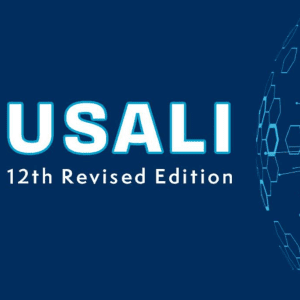 I strongly believe that the future of learning – not just language learning, but all learning – is online to some extent. As demands on our time grow and training budgets are squeezed, having the option to learn and develop online in our own time becomes critically important. But what shape should online learning take? And how can we ensure the programmes we deliver enable our learners to succeed and attain their goals?
I strongly believe that the future of learning – not just language learning, but all learning – is online to some extent. As demands on our time grow and training budgets are squeezed, having the option to learn and develop online in our own time becomes critically important. But what shape should online learning take? And how can we ensure the programmes we deliver enable our learners to succeed and attain their goals?
A few years ago I wrote about “the perceived threat of technology” in the EFL industry. At the time, many people in teaching were concerned that their role was being challenged by innovative online solutions and were subsequently pushing back against online learning. How could a computer possibly replace a real person? At the time I tended to agree with this viewpoint and felt that a technology should complement what we do, not replace it. So what, if anything, has changed my mind?
Let’s look first at the obvious advantages of online learning:
- Location: The ability to offer training anywhere and at any time. Irrespective of where your trainees are, or which time zone they find themselves in, they can still access course materials at a time that’s convenient to them.
- Logistics: After location, time is the greatest limitation on learning. This is true for both the students and the teacher, each of whom has to be available at the same time as the other to facilitate face-to-face instruction.
- It’s measurable: Most online learning technologies use online tests and quizzes to evaluate learning quickly.
- Access to expertise: The reach of online learning means that experts in highly specialised fields of study can share their knowledge with many more people, irrespective of geography.
- Up-to-date content: Traditional printed textbooks suffer from being out-of-date and therefore unreliable from the moment they are published. An agile online platform allows content to be regularly updated and for learners to receive the most up-to-date materials.
- Millennials: By 2020, millennials, or Gen-Y (those people born between 1980 and 2000) will make up 50% of the global workforce. They are tech-savvy, with a desire to access on-demand learning and a requirement for constant feedback and coaching. Millennials give their managers a lot to consider when attempting to deliver the kind of career progression expected. [1]
- An evolving workplace: Companies are becoming more globally focused and co-workers are more likely to work in different places, if not on different continents. Remote learning can help prepare employees for today’s virtual office.
- Lower cost: This almost goes without saying. Removing the need for physical location, travel, accommodation, textbooks and teachers makes online learning a much more affordable option.
These are all compelling reasons to champion the case for online learning, but the points above don’t necessarily equate success.
For a start, not everyone does well with this type of study. Not everyone is able to learn independently or is able to devote the necessary time to complete their course. It’s perhaps unsurprising that 85-95% of learners who enrol on a MOOC drop out before the end of the course [2]. Learners should ask themselves if they have the discipline to complete an online course of study.
There is also the need for communities and for social interaction. Platforms should integrate social media, making it possible to create online communities that are course specific. Blogs, tweets, podcasts, webcasts, online chats and discussion boards all reflect how we communicate today and should be part of the online training mix. Success in an online course often depends on how connected a student feels to their teacher and fellow students.
And what of the teacher? For online learning to succeed it is essential that we find and train teachers who can adapt to this new medium. If used correctly, new technology makes it possible for instructors to create exciting new ways to learn online that engage students in ways that are more effective than a one-sided lecture.
Ultimately, the training we deliver needs to reflect the needs of those we are training. It is likely that we will be working with learners who are more at ease with technology than ever before, who are innately collaborative and used to learning in teams. We must be able to offer a range of digital learning methods, while providing structure to our training with objectives that clearly define what must be achieved. Therefore the best training programmes will mix classroom instruction, self-directed study, coaching and group learning.
The teacher clearly still has a role, but as learning technologies continue to develop, so will the role of teacher need to adapt. Online learning is still in its infancy. The possibilities are limitless.
[1] PWC https://www.pwc.com/m1/en/services/consulting/documents/millennials-at-work.pdf [2] Ry Rivard http://immagic.com/eLibrary/ARCHIVES/GENERAL/GENPRESS/I130308R.pdfAbout the author
 Andy Johnson is the Development Manager at The London School of English.
Andy Johnson is the Development Manager at The London School of English.















